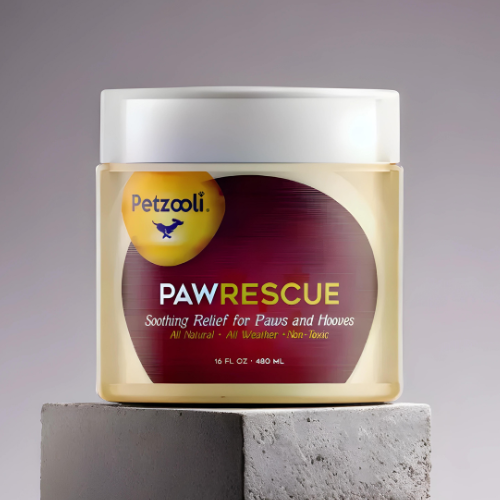
Why Does Your Dog Keep Licking His Paw? Unmissable Insights From Experts
Share
Why does your dog keep licking his paw? This is a question that many Health-conscious Pet Owners ask themselves. It's a common behavior, but one that shouldn't be ignored. Understanding why your dog engages in this activity is the first step toward addressing any underlying health or behavioral issues.
There could be several reasons why your dog is persistently licking his paw. From allergies to anxiety, and even serious medical conditions, the causes are varied. In this comprehensive guide, we will delve into the most common reasons behind this behavior and offer practical solutions to help your furry friend find relief.

Common Causes of Paw Licking
Allergies
Just like humans, dogs can suffer from allergies. These can be environmental, such as pollen or dust mites, or food-related. Allergies often cause itching and discomfort, leading to excessive paw licking. If you suspect that your dog has allergies, consulting a veterinarian for a proper diagnosis and treatment plan is crucial.
Parasites
Parasites like fleas, ticks, and mites can cause significant discomfort for your dog. These pests often target the paws, causing irritation and prompting your dog to lick the affected area. Regular grooming and the use of preventive treatments can help keep these pests at bay.
Injuries and Infections
Injuries such as cuts, scrapes, and punctures can also lead to paw licking. Your dog may lick the wound to clean it and reduce pain. However, this can introduce bacteria into the wound, leading to infections. If you notice any signs of injury or infection, it's important to seek veterinary care immediately.
Anxiety and Stress
Dogs can experience anxiety and stress, just like humans. This can result from various factors such as changes in their environment, separation from their owners, or even loud noises. Paw licking can be a coping mechanism for your dog to soothe their anxiety. In such cases, identifying and addressing the root cause of the stress is essential.

Diagnosing the Issue
Identifying the root cause of your dog's paw licking behavior is crucial for effective treatment. Here are some steps to help diagnose the issue:
Observe the Behavior
Take note of when and how often your dog licks his paw. Is it after meals, during specific times of the year, or in response to certain triggers? Keeping a record can help you and your veterinarian identify patterns and potential causes.
Consult a Veterinarian
If you're unable to determine the cause of your dog's paw licking, it's best to consult a veterinarian. They can perform a thorough examination, conduct tests, and provide a proper diagnosis. This will help rule out any serious medical conditions and guide you toward the appropriate treatment plan.

Treatment and Prevention
Allergy Management
If allergies are the cause, your veterinarian may recommend dietary changes, medications, or hypoallergenic products. Identifying and avoiding allergens can significantly reduce your dog's discomfort and prevent excessive paw licking.
Parasite Control
Regular grooming and the use of parasite preventatives can help keep fleas, ticks, and mites at bay. Ensure that you follow a consistent grooming routine and use veterinary-approved products to protect your dog from these pests.
Wound Care
For injuries and infections, proper wound care is essential. Clean the wound with an antiseptic solution and monitor it for signs of infection. If the wound does not heal or shows signs of worsening, consult your veterinarian for further treatment.
Behavioral Therapy
If anxiety or stress is the cause, behavioral therapy can be beneficial. This may include training, environmental enrichment, and the use of calming products. In severe cases, your veterinarian may prescribe medications to help manage your dog's anxiety.
Frequently Asked Questions
Is paw licking always a cause for concern?
While occasional paw licking is normal, excessive licking should not be ignored. It can indicate underlying health issues that require attention and treatment.
Can diet affect my dog's paw licking behavior?
Yes, food allergies can be a common cause of paw licking. If you suspect that your dog's diet is contributing to the behavior, consult your veterinarian for recommendations on hypoallergenic diets.
How can I prevent my dog from licking his paws excessively?
Preventing excessive paw licking involves addressing the underlying cause. This may include managing allergies, controlling parasites, ensuring proper wound care, and addressing anxiety through behavioral therapy.
For more insights into dog paw care, usage of paw balm, and reasons behind licking paw balm, visit Petzooli. Additionally, explore more about caring for dog's paw pads for more tips.
As an Amazon Associate, I earn from qualifying purchases.
